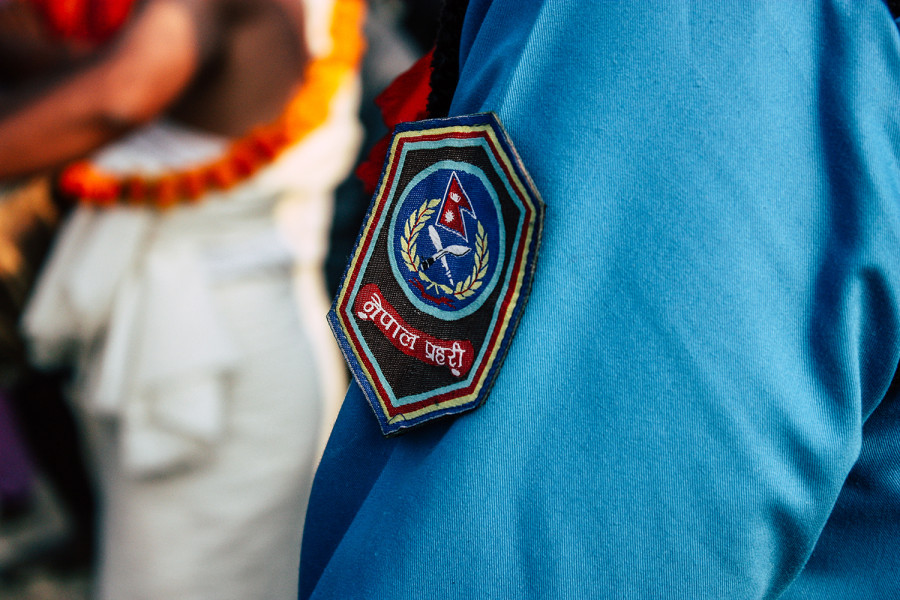Politics
Calls from the police shake up human rights activists
At least three human rights activists received unsolicited calls from the police asking for their professional affiliation, without explanation.
Tika R Pradhan
On Sunday afternoon, Daman Nath Dhungana, a veteran human rights activist and former Speaker of the House, received a phone call. It was from the police, who said that his name appeared on a list of human rights activists and they were calling to ask him just what organisation he was affiliated with.
“Such an inquiry itself was enough for me to feel the need for human rights,” Dhungana later tweeted.
The call alarmed him, said Dhungana.
“I told the policeman I am not affiliated with any organisation,” Dhungana told the Post on Tuesday. “But I was disturbed by the call for hours, thinking about why I was under the scrutiny of security forces.”
The policeman who called Dhungana never specified where he was calling from, let alone the purpose of the call, he said.
But Dhungana is not the only human rights activist to have received similar calls from the police.
Charan Prasain, who coordinates Accountability Watch Committee, a loose forum of human rights defenders, was also questioned about his professional affiliation by a policeman from the Nepal Police headquarters on Sunday. Prasain too said he was not told why the police were calling him.
“It was reminiscent of the days when the king [Gyanendra] had assumed absolute power and the regime was keeping an eye on critics of the royal government,” Prasain told the Post.
These unsolicited phone calls are one more reminder of the insurgency-era, where the citizenry, especially activists, was under the careful watch of the state. Recently, police have once again begun stopping people walking on the streets after dark and questioning them. While the police say they are doing it for safety reasons, those stopped don’t buy it.
This kind of questioning by the police, however innocuous it may be, is not a good sign, rights activists say.
“It’s a matter of serious concern if the government wants to place us under scrutiny,” said Prasain, who is a vocal critic of the KP Sharma Oli administration.
Krishna Pahadi, founding chairman of the Human Rights and Peace Society, also received a call that same Sunday. Pahadi, who does not carry a cell phone, was called at both his office and his home by the police headquarters, he said.
Deputy Inspector General Bishwaraj Pokharel, spokesperson for the Nepal Police, confirmed that information about human rights activists was being collected by the police headquarters.
“Tomorrow and the day after tomorrow, we’re holding interactions with former police officers, and then we will interact with human rights activists,” Pokharel told the Post on Tuesday. “Maybe they were called to inquire about their details for possible invitations as there are many human rights organisations.”
Dhungana, however, is not convinced.
“If that was the case, I should have been informed. If they want to invite human rights activists to a programme, they must maintain decorum,” said Dhungana, who described the officer’s tone as rather forbidding. “A senior official could have spoken to us in a proper manner.”
Dhungana believes that the police’s response could simply be a damage control measure, after word got out that they were calling up human rights activists.
It’s not that the police cannot make phone calls, said rights defenders, but they need to clearly state the purpose of their call as some might consider such police inquiries harassing or threatening.
“Some people might lose their sleep over such random calls from the police,” said Dhungana.
Uma Kanta Adhikary, an information officer at the Home Ministry, however, said the ministry had no such policy of collecting information about human rights activists.
“Chief District Officers have the authority to monitor and collect details of individuals,” Adhikary told the Post.
Assistant Chief District Officer Krishna Bahadur Katuwal, who is also the information officer at the Kathmandu District Administration Office, said he was not aware of any such inquiries.
“Since the police headquarters looks after national issues, we don’t know what they were doing,” said Katuwal. “In Kathmandu, we don’t have any such policy to seek the details of human rights activists.”
Dhungana believes that the police’s motives are more insidious.
“They wanted to alarm us—especially those critical of the government,” he said.




 13.12°C Kathmandu
13.12°C Kathmandu














